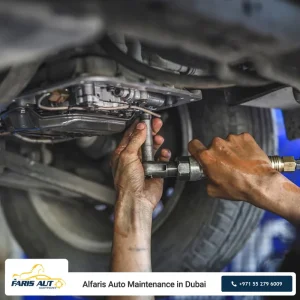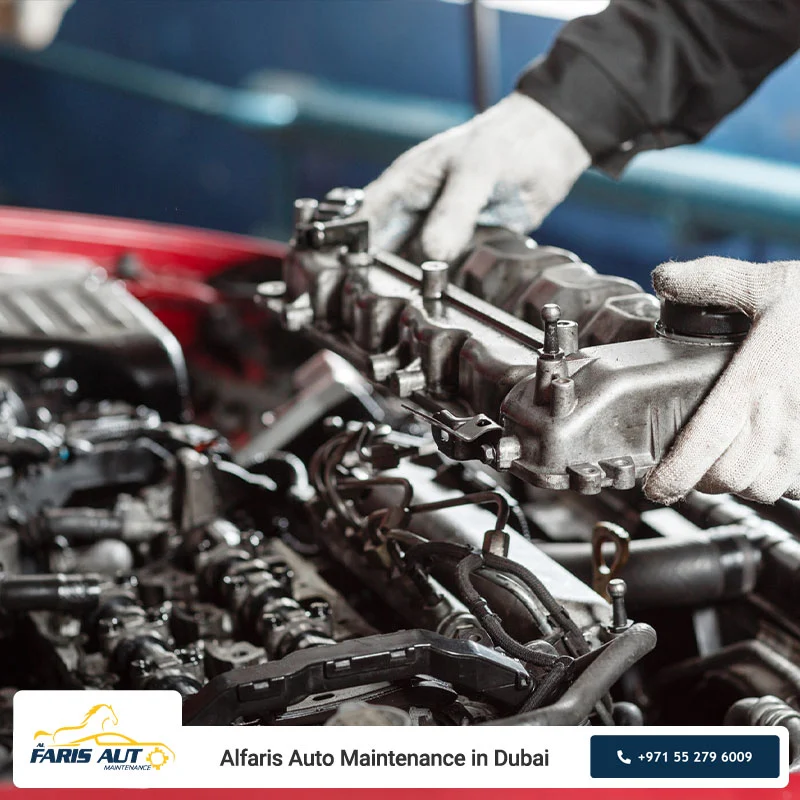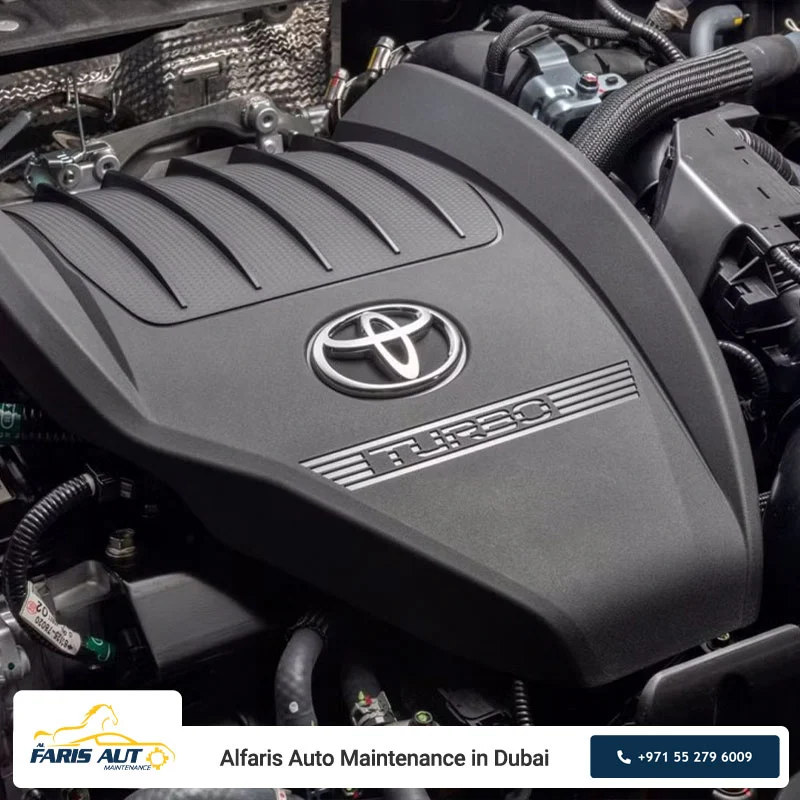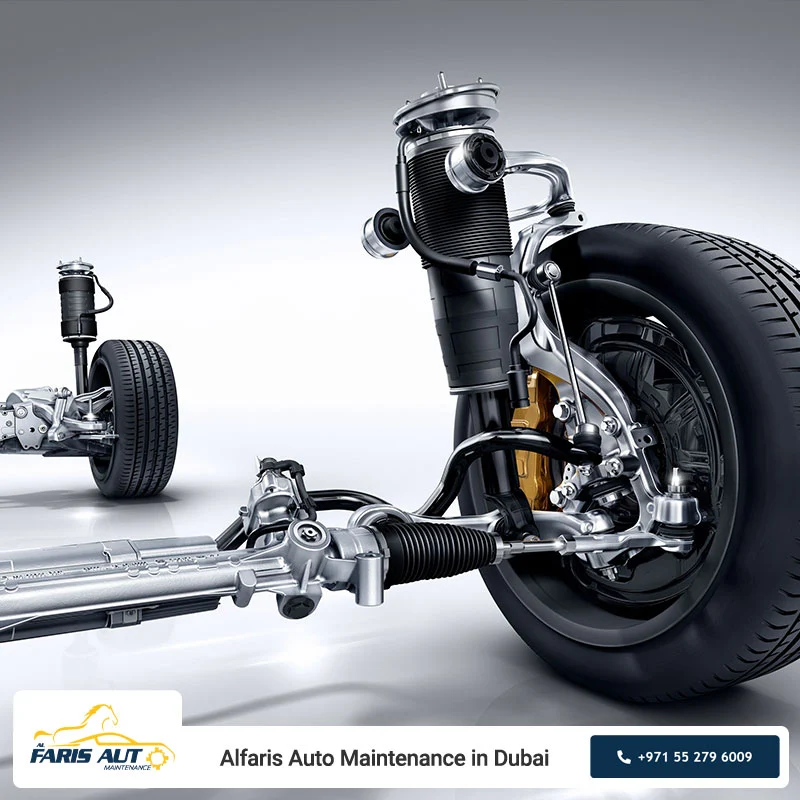The purpose of this article is to provide a comprehensive and practical guide on car transmission repair. In this article, we first become familiar with the different types of transmissions, their components, and the main steps involved in transmission repairs. Then, we examine the common symptoms and causes of transmission failure. Finally, important maintenance tips to extend the lifespan of the transmission will be presented.
The transmission, or gearbox, is one of the vital components of a car, playing a key role in transferring power from the engine to the wheels and regulating the car’s speed and torque. Without a properly functioning transmission, a car cannot move correctly or control its speed effectively. The importance of timely maintenance and repair of the transmission is significant due to the sensitivity of this component and its direct impact on the overall performance of the car.
Transmission failure can not only reduce driving safety but also lead to costly repairs and part replacements. By reading this article from Alfaris Auto, you can take quick action when gearbox problems occur, helping you avoid unnecessary costs.
- Signs and Symptoms of Transmission Failure
- Common Causes of Transmission Failure
- Understanding Car Transmission
- Main Steps in Transmission Repair
- Maintenance and Prevention Tips
- Alfaris; Specialized Car Transmission Repair Workshop in Dubai
Signs and Symptoms of Transmission Failure
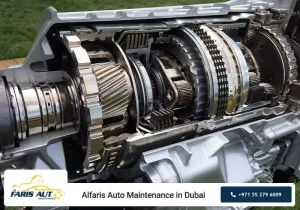
Early diagnosis of transmission failure for timely car transmission repair is very important.. Common symptoms of transmission failure include:
- Unusual noises when shifting gears: Sounds like whining, clunking, or grinding often indicate worn gears or clutch problems.
- Gear slipping or difficulty shifting: If the car hesitates to stay in gear or shifts are hard, it suggests internal transmission issues.
- Transmission fluid leaks: Transmission fluid lubricates and cools internal parts. Leaks can cause increased friction and damage. If you notice fluid stains under your car, immediate inspection is necessary.
- Burning smell or overheating: A burning odor often indicates clutch slippage or insufficient fluid, which can lead to internal component damage.
- Vibration or sudden car stall during gear shifts: This points to severe issues such as damaged shafts or gears.
- car not moving in gear: One of the most serious signs, often caused by clutch failure or major gear damage, requiring urgent repair.
For instance, if a driver hears clunking noises during gear changes and sometimes the car won’t engage a gear, immediate professional inspection is essential to prevent further damage. Al Faris is a specialized transmission repair workshop in Dubai, ready to provide a wide range of services in engine and transmission repair.
Common Causes of Transmission Failure
Car transmission failure results from multiple factors that lead to the need for transmission repair. Some of the most important causes are:
- Incorrect gear usage: Abrupt gear changes or using inappropriate gears for the speed can quickly damage gears and clutch.
- Low or poor-quality transmission fluid: Transmission fluid lubricates internal parts. Delayed fluid changes or using the wrong fluid increases wear and heat.
- Ignoring scheduled maintenance: Regular servicing, including fluid replacement and component inspection, prevents buildup of contaminants and serious damage.
- Using incorrect transmission fluid: Fluids that do not meet the car’s specifications can rapidly degrade internal parts.
- Internal component damage: Wear of gears, clutch deterioration, and damage to seals and bushings are also major causes of transmission failure and repair.
- Harsh driving conditions: Heavy traffic, mountainous roads, and carrying excessive loads put extra strain on the transmission, shortening its lifespan.
For example, a driver frequently hauling heavy loads on mountain roads without regular maintenance is at a higher risk of premature transmission failure.
Understanding Car Transmission
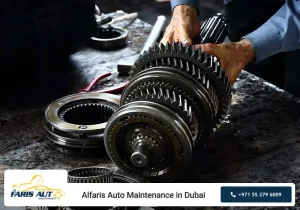
The transmission is a mechanical device that transfers the engine’s power to the wheels while adjusting the car’s speed and torque. There are generally three types of transmissions:
- Manual Transmission: The driver manually shifts gears. This type is common in economy and sports cars and offers greater control to the driver.
- Automatic Transmission: Gear changes occur automatically, making driving easier, especially in urban traffic. Transmission repair for these systems is usually more complicated than other types of transmission.
- Semi-Automatic Transmission: A hybrid system where the driver can choose to shift gears manually or allow the system to do it automatically. This is found in some specialized cars.
The main components of a transmission include gears, clutch, input and output shafts, seals, and bushings. Gears regulate the power transfer ratio and speed, the clutch controls the engagement and disengagement of power, and seals and bushings prevent oil leakage and reduce friction.
For example, when the car is in first gear, specific gears engage to provide high torque, enabling the car to start moving from a standstill. As speed increases, the gears shift to allow higher speeds with better fuel efficiency. To ensure the proper functioning of this process, you can benefit from Al Faris’s routine service and maintenance offerings in Dubai.
Main Steps in Transmission Repair
Repairing a car transmission is a detailed and technical process that requires expertise and proper tools. The main steps include:
- Accurate diagnosis: Using specialized diagnostic devices and road tests to precisely identify the problem. This step is critical to avoid unnecessary replacements.
- Disassembly: After diagnosis, the transmission is dismantled to inspect all components closely and identify damaged parts.
- Replacement or repair of damaged parts: Worn or broken parts such as gears, clutch, seals, and bushings are repaired or replaced. For example, a burnt clutch must be replaced to restore normal operation.
- Transmission fluid replacement: Old fluid is drained and replaced with the correct type of fluid to ensure optimal lubrication and cooling.
- Final adjustments and performance testing: After reassembly, the transmission is tested under various conditions to confirm the repair’s success and proper functioning.
For example, if a car has difficulty shifting gears and emits a burning smell, after diagnosing the problem, the clutch and several gears may need to be replaced. After performing car services such as repairs and parts replacement, multiple tests should be conducted to ensure the transmission returns to its normal operation.
Maintenance and Prevention Tips
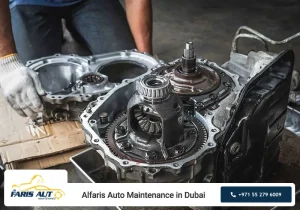
To increase the lifespan of the car and reduce the need for transmission repairs, observing the following points is essential:
- Regular service intervals: Timely fluid changes and component inspections help detect and fix minor issues before they escalate.
- Proper driving habits: Avoid abrupt gear changes and use the clutch correctly to reduce transmission stress.
- Use manufacturer-recommended fluids: Always use high-quality transmission fluid that meets your car’s specifications.
- Consult specialists promptly: At the first sign of trouble such as unusual noises or fluid leaks, seek expert advice without delay.
- Drive under recommended conditions: Avoid excessive loads and harsh driving environments to reduce strain on the transmission.
By following these guidelines, you can significantly lower your transmission repair costs and enjoy smoother, safer driving. If you need car repairs, you can contact AlFaris through the contact page.
Alfaris; Specialized Car Transmission Repair Workshop in Dubai
With extensive technical and scientific expertise, specialized equipment, and skilled technicians, Alfaris is ready to offer a wide range of services including transmission repair, engine repair, suspension system maintenance, periodic car inspections, and many other diverse services. By visiting this workshop, you can be confident in receiving professional services with guaranteed quality, allowing you to enjoy driving your car with complete peace of mind.
Timely repair and maintenance of your car transmission are vital for car performance and safety. Ignoring symptoms like unusual noises, fluid leaks, or a non-moving car in gear can lead to severe damage and expensive repairs. Prompt action and consultation with skilled professionals can prevent further issues and reduce costs. With proper care and regular servicing, the transmission’s lifespan is extended, and driving safety is enhanced. Therefore, paying close attention to your car’s transmission and repairing it promptly is key to maintaining a healthy and high-performing car.
